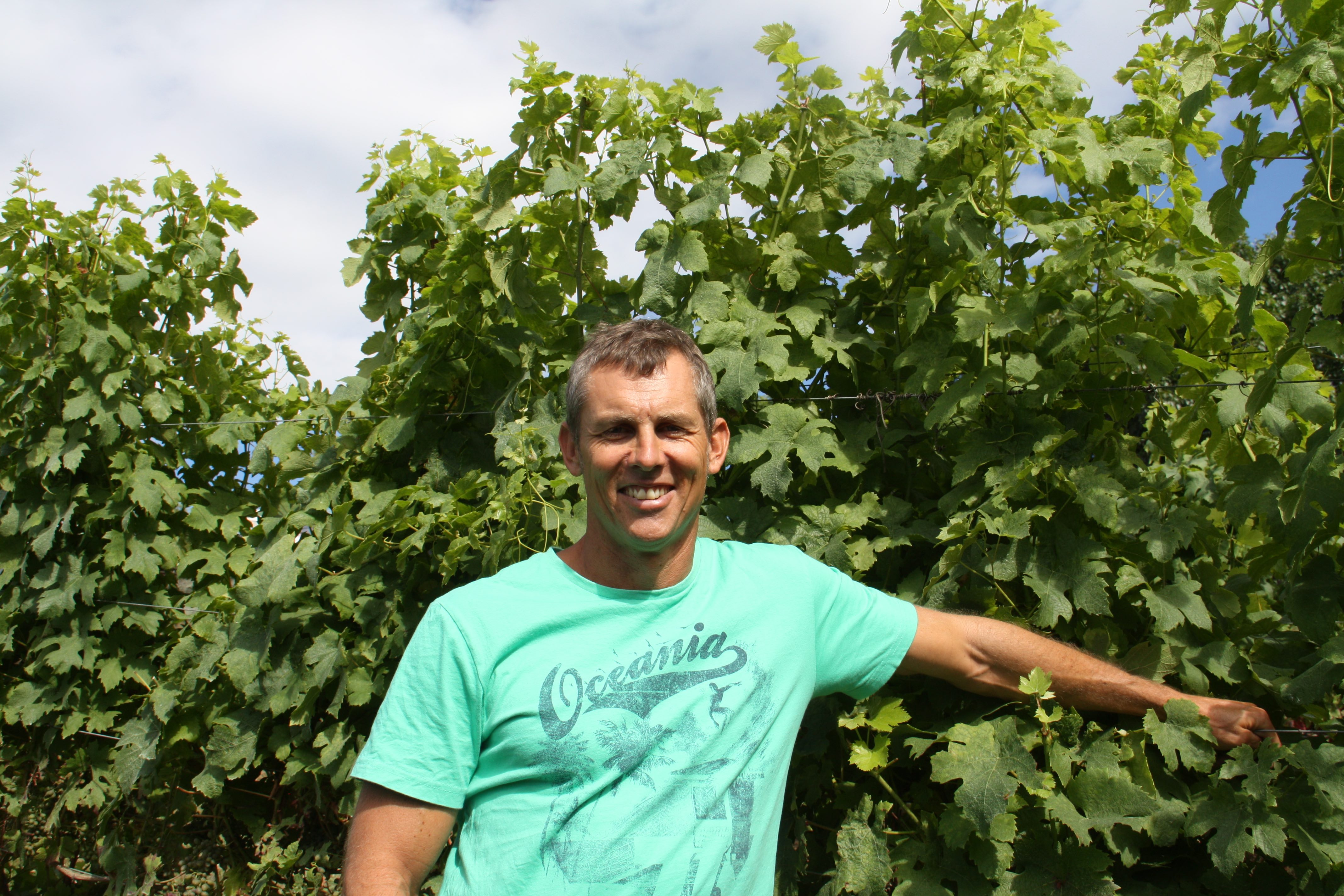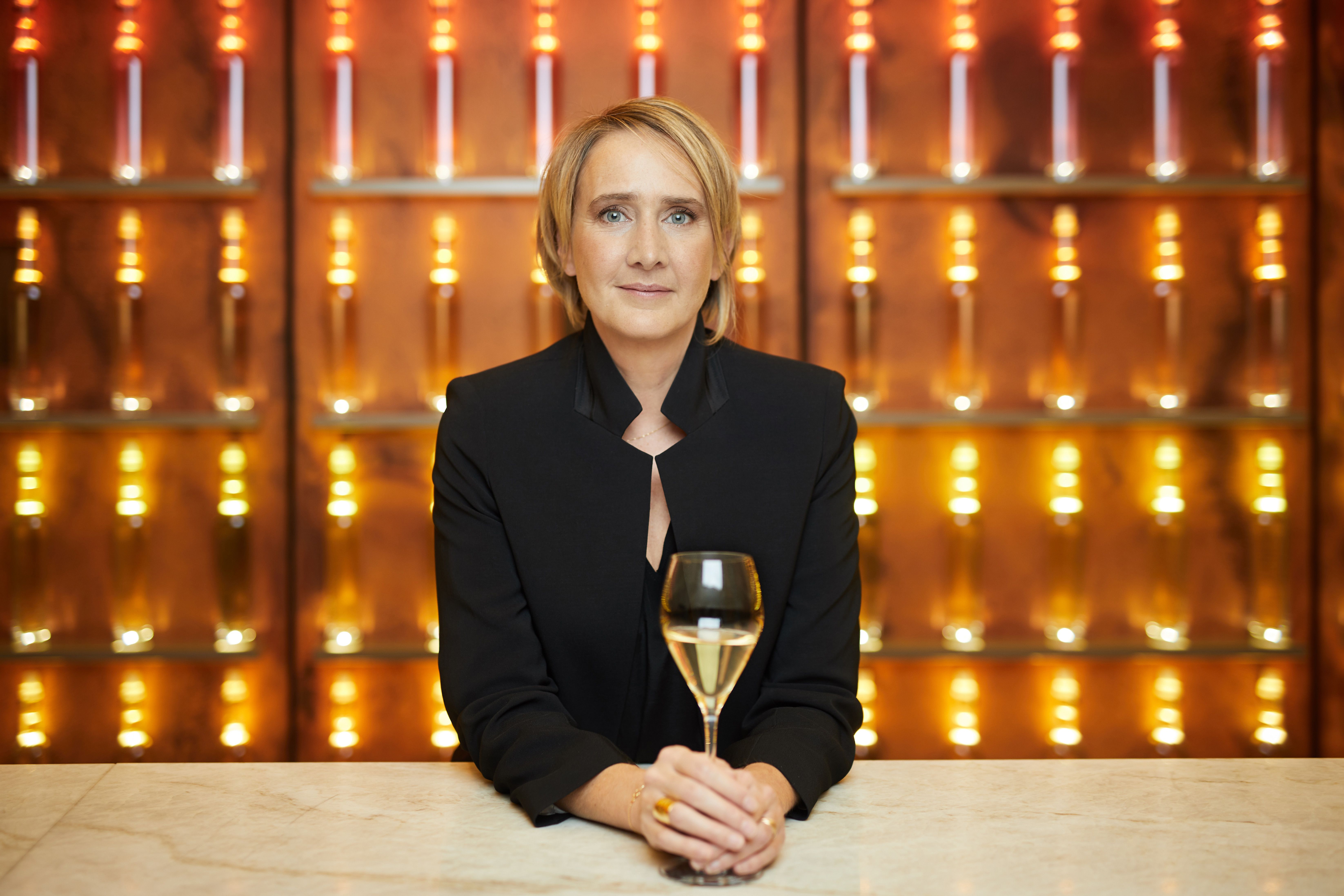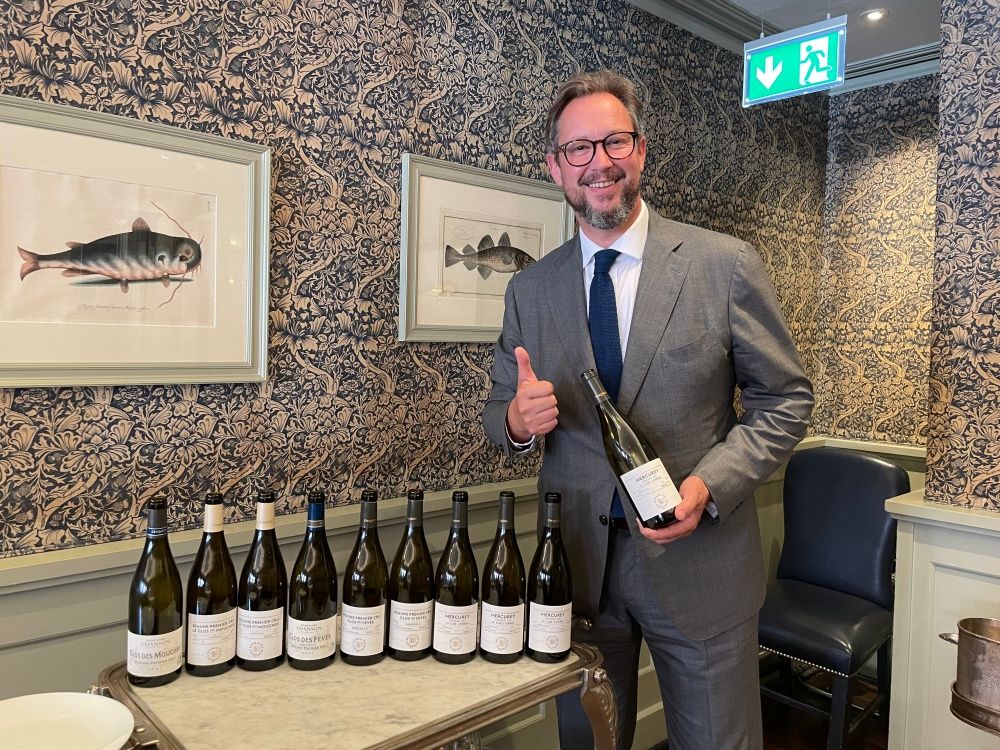Babich Wines is one of many New Zealand wine producers changing the way they do business to keep up with levels of global demand for their wines.
Babich Wines may have celebrated its 100th year anniversary last year, but it, like many other leading New Zealand wine producers, feels it is only really starting out. Particularly in terms of capitalising on New Zealand’s growing status as one of the fastest growing wine producing, and exporting, countries around the world.
Everywhere you look in the main wine consuming markets and New Zealand is very much flavour in the month. It after all single handedly drove the Sauvignon Blanc boom in the UK.
But crucially it is now making major in roads in to arguably more premium and profitable countries than the UK. Yes, the British supermarkets can offer all the volume they might need, but when it comes to putting increasingly less valuable New Zealand dollars in the bank then the fact the US has now woken up to the charms of New Zealand is massively important to the futures of producers like Babich.
In the last year alone the value of New Zealand’s exports to the US have now surpassed Australian wine (Rabobank) as its total exports to the country have gone from 2.5 million litres in 2000 to 61 millions litres in 2016 (New Zealand Winegrowers).
So for producers of the scale of Babich it means they are, potentially for the first time, really beginning to make full use of all their assets and winemaking power and credentials. It certainly means they are having to make a lot more wine, and then find more creative ways of selling it than simply putting it in a bottle.
More layers
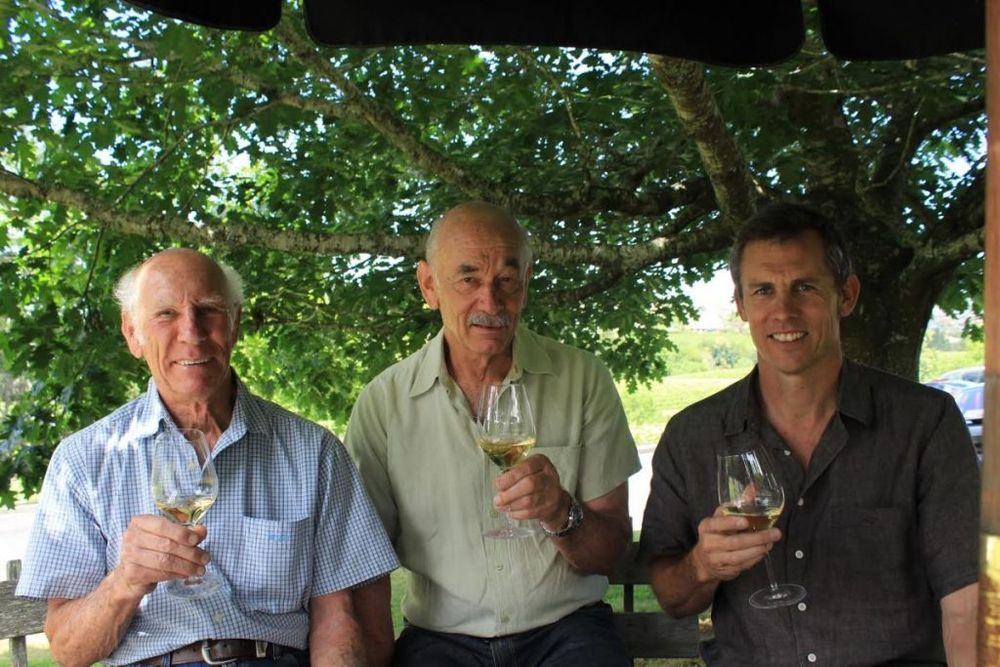
Building on 100 years of tradition with Peter, Joe and David Babich
“There are just more layers to our business than ever before,” says David Babich, general manager of the family run Babich business. Its production capacity now covers some 350 hectares in Marlborough, 150 around Hawkes Bay and 15 hectares in Auckland, which is split between its own vines and those it runs on a contract basis.
Babich knows that to grow and really take advantage of the new found demand for New Zealand wine it has to embrace different ways of using its wine and production facilities. Which now very much includes contract and third party winemaking and expanding the bulk wine part of its business.
The main Babich branded wines remain the key and most important part of the business, but the second labels and contract work it is increasingly doing is becoming more significant and requires a different strategy and way of thinking, says Babich.
It is now, for example, shipping 1.8 million litres in bulk wine and knows the market can take more providing it can access the right quality juice. “Marlborough, though, is getting trickier,” he adds.
Managing inventories
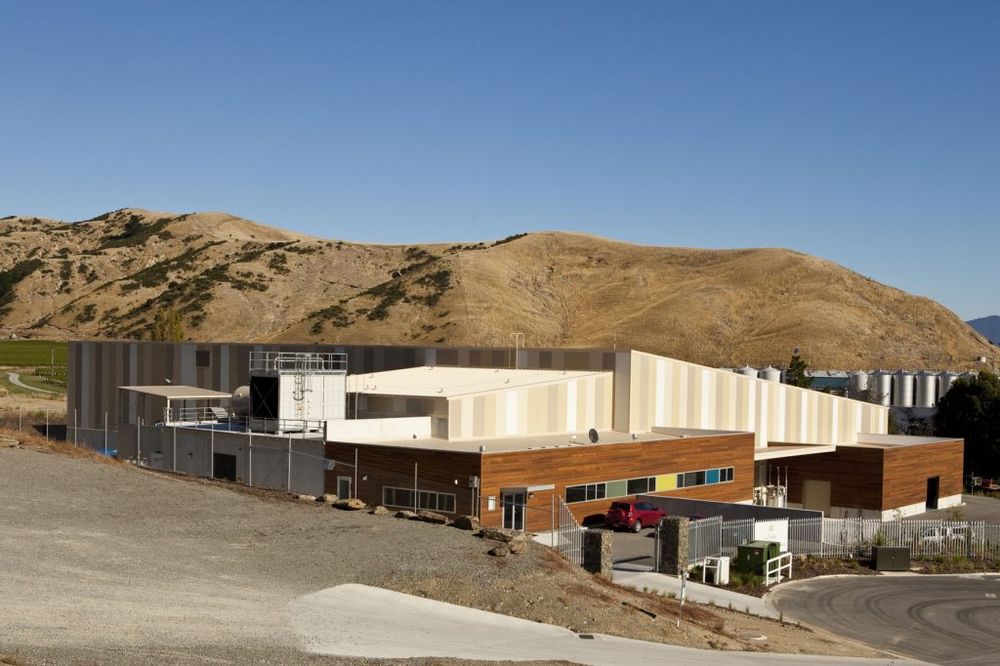
Global demand has seen the Babich Winery have to expand: Jacqui Leslie photo
In fact when you talk to New Zealand producers they are just as likely to stat talking about “managing inventories” as they are the quality of their latest crop of Sauvignon Blanc. Which for all the prestige and reputation a business like Babich has is still relatively new ground.
By working in different channels of the wine industry, and its production needs, producers of the scale of Babich are able to play the system far more effectively. Bulk wine makes a lot of sense as it allows large volumes of wine to be shipped and out of the winery, whilst bringing in a faster turnaround of revenue at the same time.
“It is also good for cash flow,” says Babich. “It now ticks a lot of boxes for us. It has become a lot more serious part of our business than before and grew around 30% between 2015 and 2016.”
Year-round potential
For Babich the new demand means it is able to make use of its production facilities all year round.
“You have to look at your winery far more on a 12-month cycle,” he explains. “So if you can do some contract and service work with bulk and second label wines it all contributes to our total revenue which we can then re-invest in Babich Wines. Bulk wine is contributing far more to our profits now.”
That said the recent 20% currency hit that New Zealand has taken on the back of the slump in sterling has meant it has had to scale back its bulk wine work to the UK and other affected markets by around half a million litres.
Instead it is looking to do more contract winemaking to make up for the shortfall in its bulk business. “You also get paid quicker too.”
International growth
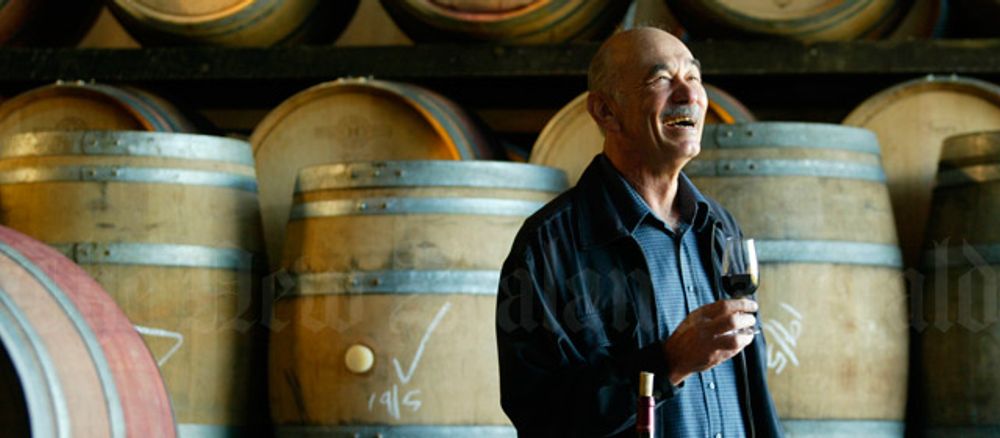
Joe Babich, the company’s managing director with some 35 vintages under his belt as a winemaker
Demand from a growing number of international markets is driving real change across the New Zealand industry, stresses Babich. The US being arguably the most significant change in recent years. “We are really strong there. Everyone is also making money in the US thanks to the currency.”
Babich was also one of the first New Zealand wineries some 14 years ago to get a foothold in China and says that although it remains a difficult market there is still so much opportunity there. “Over the next five to 10 years it is just going to grow and grow.”
It has equally been in Japan for 20 years and Hong Kong for 15 years.
All the Asian markets, he says, are more exciting for New Zealand producers because there is much more interest in its white wines. “It used to be 90% red, 10% white, but is now closer to 60% red, 40% white,” says Babich.
Its Croatian family background means it has also enjoyed strong business across Eastern Europe, which with the increased imports in to countries such as Romania, Hungary, Slovenia and Croatia itself has also been good news for Babich.
UK difficulties
The situation in the UK, as we know, is a lot more complicated. On the hand volumes are high in the off-trade, but margins are low. The need to hit certain price points to be able to compete on a branded level has also been difficult for Babich, he confirms.
But the independent and on-trade routes are a lot more exciting and Babich is keen to work closer with its UK partners, Conviviality, to maximise the potential of the new buying and distribution structure. After being with Bibendum it is now within the Walker & Wodehouse stable, which is focused on servicing the independent merchant market, as part of the new look Conviviality PLC management structure.
He says it is still early days for how the Conviviality model is gong to work, but on paper a producer of its size, longevity and flexibility should be able to do well. “We do see the long term potential there.”
As well as all the other key markets that are helping put Babich, and other leading New Zealand wine producers increasingly on the world map.
- This is an adapted article from one first published on VINEX, the global bulk wine trading platform.
